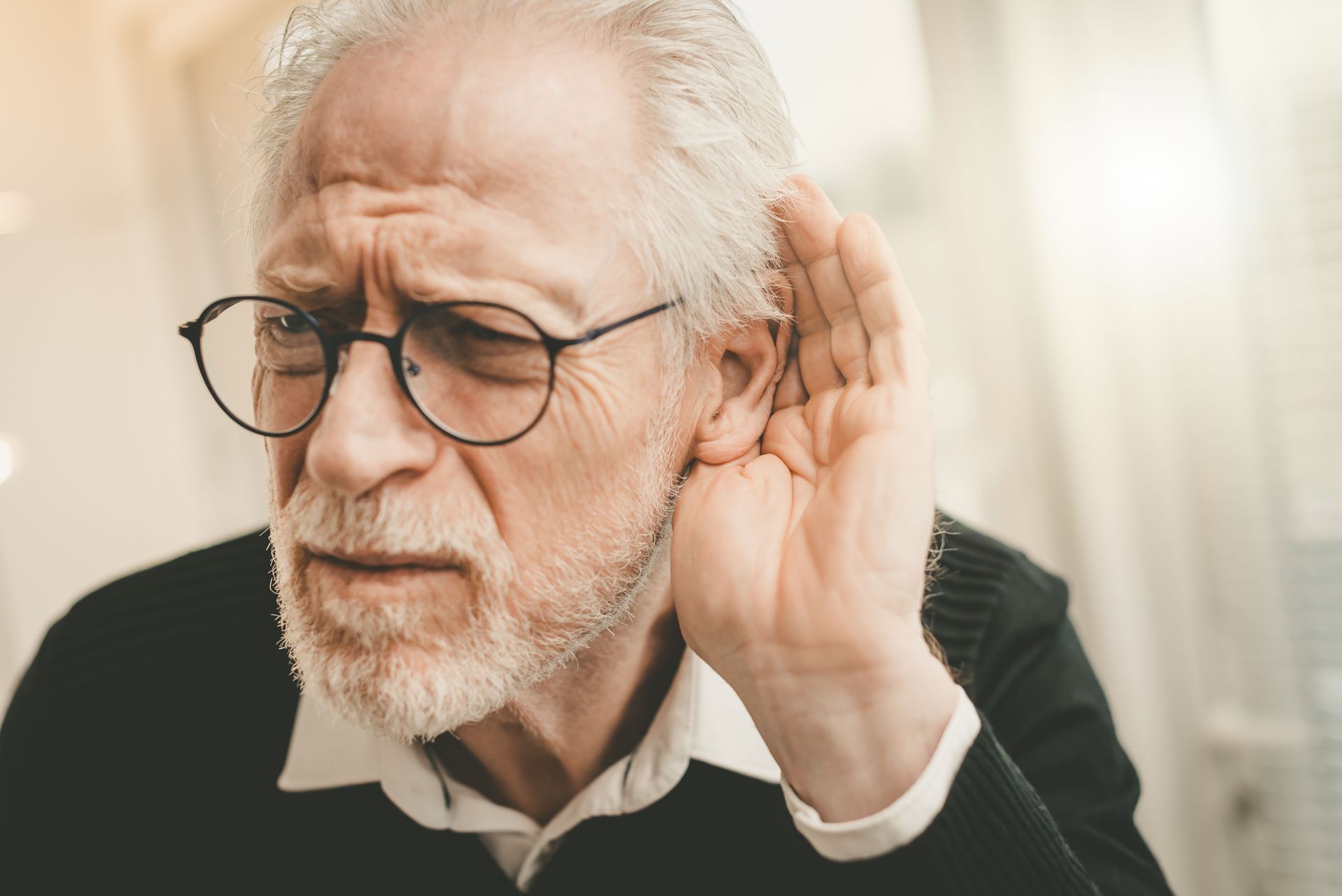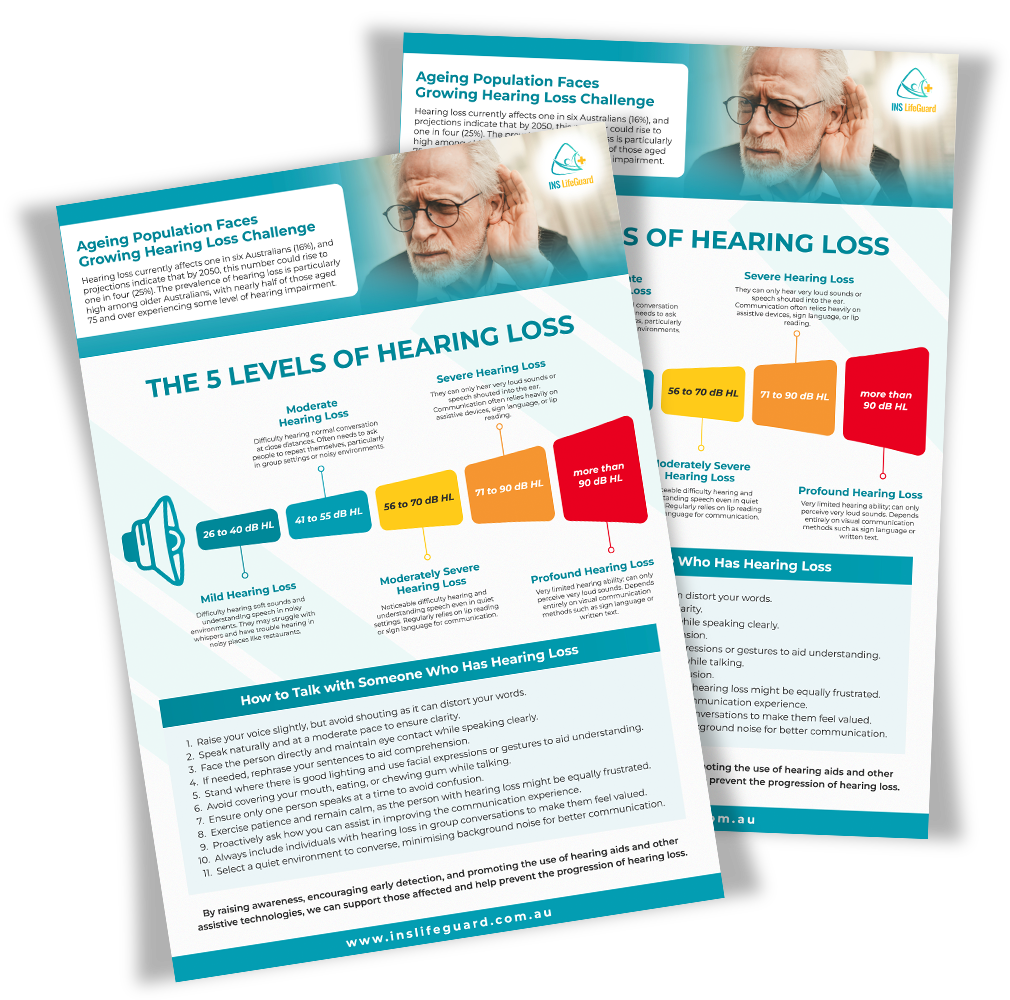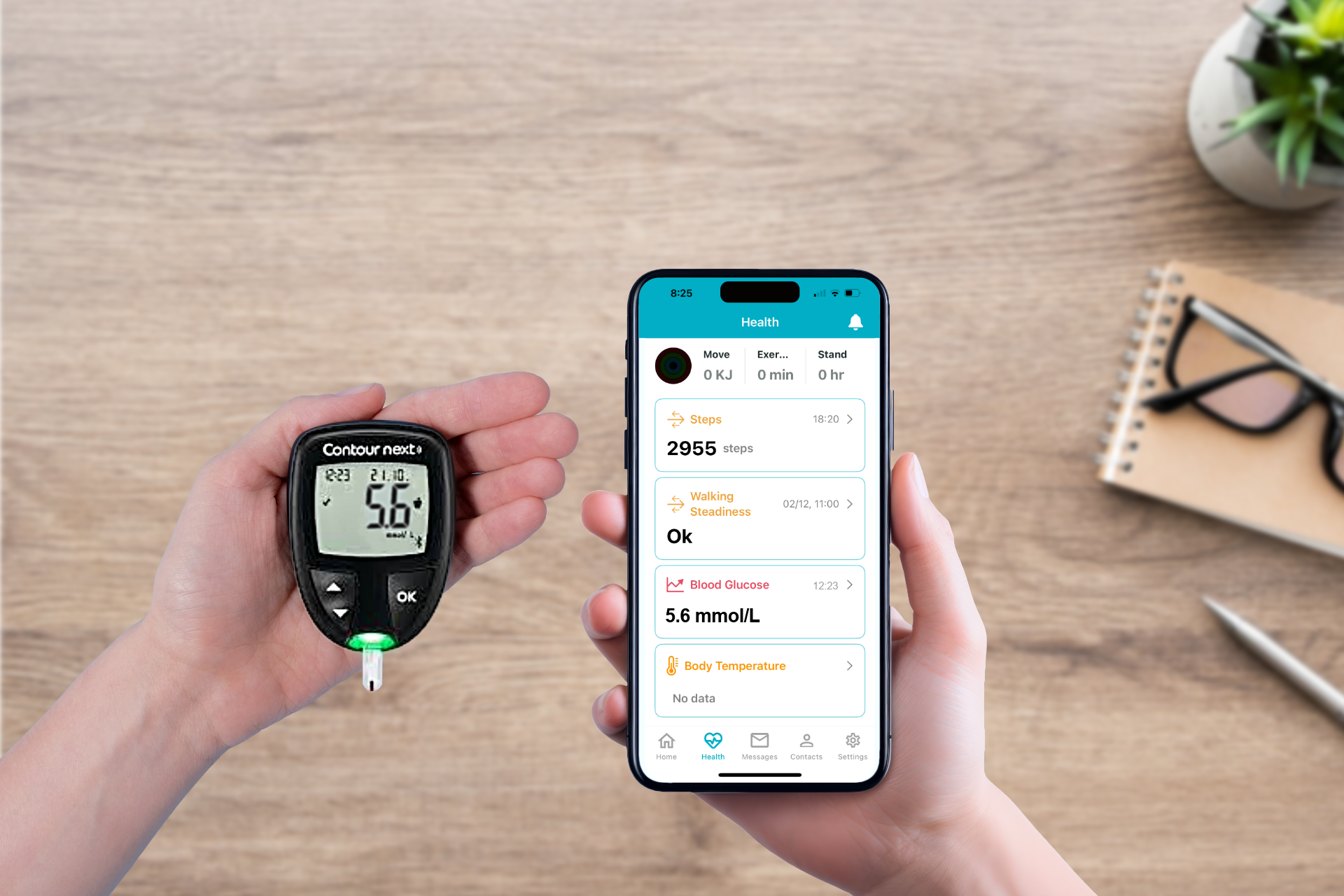Have a Question?
Understanding Hearing Loss: Causes, Symptoms, and Treatments

Have you ever wondered what causes hearing loss? Are you curious about the early signs and symptoms? Or perhaps you're searching for effective solutions to help a loved one cope with this condition. This blog aims to provide comprehensive answers to these questions and more.
Hearing loss is a prevalent condition in Australia, affecting people of all ages. According to the Hearing Care Industry Association (HCIA), approximately one in six Australians suffers from some degree of hearing loss. This statistic translates to around 3.6 million people.
What is Hearing Loss?
Hearing loss is a reduction in the ability to perceive or understand sound. It can affect one or both ears and can range from mild to profound. This condition can significantly impact an individual's ability to communicate and engage with their environment.
The symptoms can vary depending on the type and severity. Common signs include:
- Difficulty understanding speech, especially in noisy environments.
- Frequently asking others to repeat themselves.
- Turning up the volume on electronic devices.
- Feeling that others are mumbling or speaking too softly.
- Ringing in the ears (tinnitus).
It can stem from a variety of factors, both genetic and environmental. Have you ever been exposed to loud noises for extended periods? This could be a significant contributor. Other causes include ageing, infections, certain medications, and even genetics. Understanding these causes can help in preventing or managing the condition effectively.
Types of Hearing Loss
There are three main types of hearing loss:
Conductive Hearing Loss
Occurs when sound waves are not efficiently conducted through the outer ear canal to the eardrum and the tiny bones (ossicles) of the middle ear. This type of hearing loss is often temporary and can be treated medically or surgically. The main causes include:
- Ear Infections: Otitis media, an infection of the middle ear, can cause fluid buildup that impedes sound transmission.
- Earwax Buildup: Excessive earwax can block the ear canal, hindering sound waves from reaching the eardrum.
- Eardrum Perforation: A ruptured eardrum, due to injury or infection, can disrupt the conduction of sound.
- Otosclerosis: This hereditary condition involves abnormal bone growth in the middle ear, preventing the stapes bone from vibrating properly.
Sensorineural Hearing Loss
Results from damage to the inner ear (cochlea) or the nerve pathways from the inner ear to the brain. This type of hearing loss is usually permanent and can be managed with hearing aids or cochlear implants. Major causes include:
- Ageing (Presbycusis): Age-related hearing loss is the most common type, affecting high-frequency hearing abilities first.
- Noise Exposure: Prolonged exposure to loud noises, such as from industrial machinery, concerts, or headphones, can damage the hair cells in the cochlea.
- Ototoxic Medications: Certain drugs, like aminoglycoside antibiotics, chemotherapy agents, and loop diuretics, can be toxic to the inner ear structures.
- Genetic Factors: Hereditary conditions, such as Usher syndrome and Waardenburg syndrome, can cause congenital or progressive hearing loss.
- Illnesses and Infections: Diseases like meningitis, measles, and mumps can damage the auditory nerve or inner ear structures.
Mixed Hearing Loss
Mixed hearing loss is a combination of conductive and sensorineural hearing loss and can be caused by factors affecting both the middle and inner ear. Causes can include a combination of factors, such as:
- Chronic Ear Infections: Recurrent infections can cause damage to both the middle ear structures and the inner ear.
- Trauma: A severe head injury can result in damage to both the middle ear bones and the inner ear or auditory nerve.
- Otosclerosis Complications: Advanced otosclerosis can sometimes extend into the cochlea, causing sensorineural hearing loss in addition to conductive hearing loss.
The 5 Levels of Hearing Loss
Looking to support someone with hearing loss? Understanding the degrees of hearing loss—from mild to profound—is crucial for providing appropriate support and interventions. Download our handy guide for more insights into the different levels of hearing impairment and learn practical tips for effective communication and assistance.

Managing Hearing Loss
1. Consult a Healthcare Professional
The first step in managing hearing loss is to consult an audiologist or an ENT specialist. They can conduct a comprehensive hearing evaluation to determine the type and extent of your hearing loss.
2. Get a Hearing Test
A hearing test involves a series of audiometric tests that measure your ability to hear sounds at different frequencies and volumes. This test is essential for diagnosing the degree of hearing loss and developing a treatment plan.
3. Explore Treatment Options
There are several treatment options available, depending on the type and severity of your hearing loss. Hearing aids are the most common solution, but cochlear implants or bone-anchored hearing systems might be recommended for more severe cases. Each option has its benefits and limitations, so discuss these with your audiologist to find the best fit for you.
4. Choosing the Right Hearing Aid
Hearing aids come in various styles, including behind-the-ear (BTE), in-the-ear (ITE), and completely in-canal (CIC) models. Consider factors such as comfort, lifestyle, and degree of hearing loss when choosing a hearing aid. Your audiologist can help you decide which type is best for you.
5. Personal Alarm System
For individuals with mild and moderate hearing loss, INS LifeGuard offers a comprehensive personal and medical alarm system designed to provide safety and peace of mind. The system includes various components such as wearable pendants, base units, and mobile applications, designed to detect falls, monitor vital signs, and more. In case of an emergency, users can trigger an alert, which will be received by a qualified nurse for immediate assessment.
Takeaway
Hearing loss is a complex condition with a variety of causes and significant impacts on individuals and society. Early detection and intervention are crucial in managing hearing loss effectively. By understanding the types, causes, symptoms, and management options, individuals can take proactive steps towards better hearing health and improved quality of life.

About
INS LifeGuard is the only 24/7 nurse on-call personal and medical monitoring in Australia. We provide monitoring technology for both in the home and on the go and can also monitor other provider's equipment. Our services are suitable for anyone wanting support to stay independent such as the elderly, those with medical conditions and disabilities plus enhancing safety and security for lone workers.

















